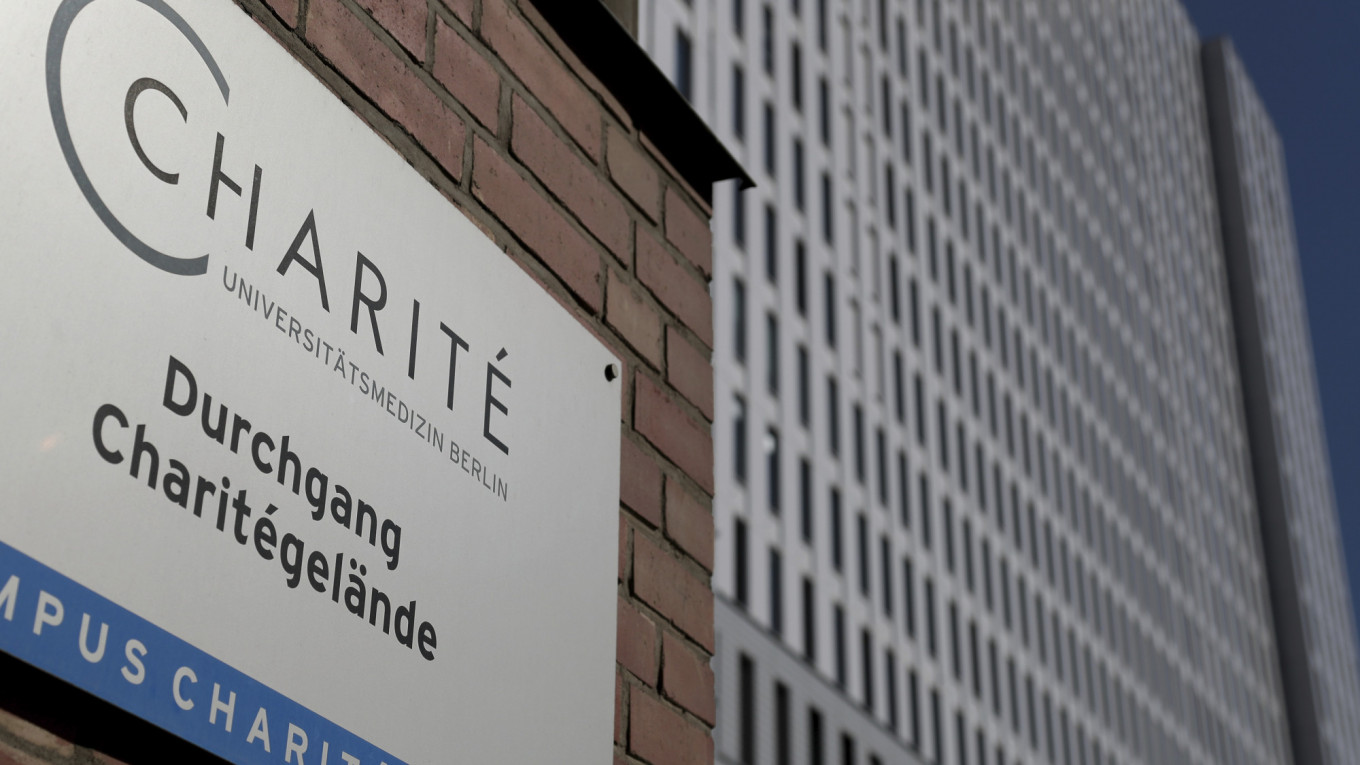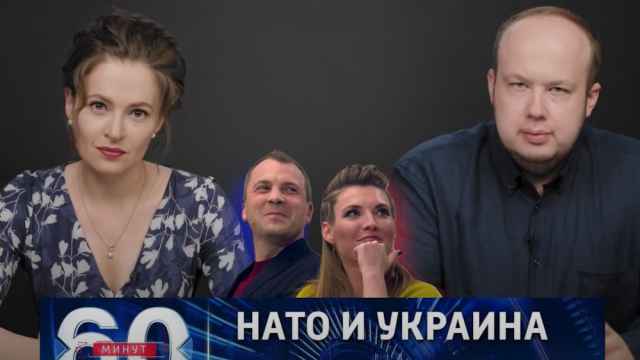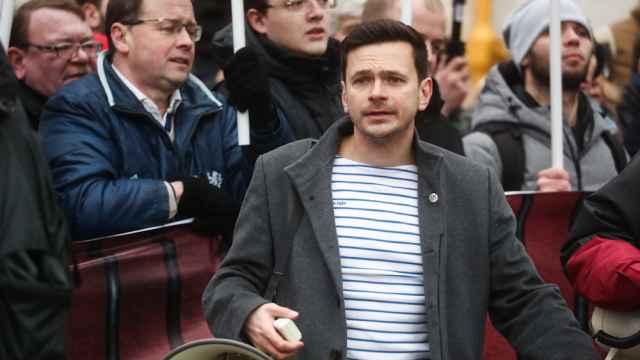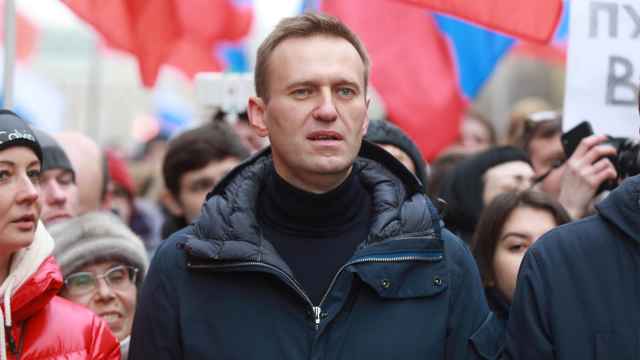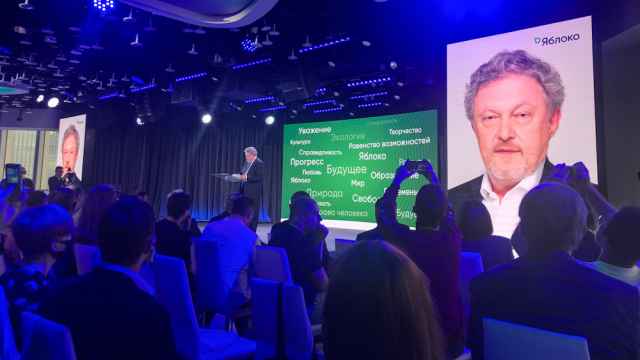For many, this week’s revelations by German authorities that Alexei Navalny was poisoned by Novichok — a chemical that a non-state rogue agent working on their own initiative would be hard-pressed to get their hands on alone — served as the final evidence that the attack must have been committed with the Kremlin’s knowledge and approval.
Here’s what’s likely going to happen now.
The Kremlin and its sympathizers will deflect by saying there is no proof of its involvement and inventing a million different explanations for why it bears no responsibility — from “we don’t know who did it, through our doctors found nothing” to “Western spies fabricated a provocation to blame us.”
Its opponents will painstakingly strike down each of these explanations, arguing that the Kremlin is covering up its involvement.
The Kremlin, in turn, will throw out more obfuscation and more subterfuge — inadvertently making it even more obvious that it is covering up its own involvement.
In the end, the Navalny case, just like the Skripal poisoning before it, and the Nemtsov murder before that, risks becoming weaponized on both sides of the political war between Russia and the West.
Navalny’s poisoning will reinforce the narrative of an evil Kremlin that kills its opponents, while the Kremlin in turn will use that narrative, and the (rightly imposed) sanctions that come with it, to reinforce its own narrative of a Russia deliberately maligned and attacked by the West.
None of this will lead to the real culprit standing trial and the Kremlin’s indirect involvement — if it was indirect —being uncovered, explained and accounted for.
Because let’s face it, we need to come to terms with the fact that even if Vladimir Putin did not personally authorize Navalny’s poisoning and did know of it in advance, it doesn’t mean he is not responsible.
He is equally responsible for one of two scenarios. Either someone poisoned Navalny with the Kremlin’s knowledge, aid or approval, or the Kremlin has, over time, enabled and facilitated a system in which various agents, hoping to score money or political capital, go unpunished or even gain rewards for carrying out attacks or even trying to start wars that they think are in the Kremlin’s favor.
Ilya Ponomaryov, the former Russian parliamentarian who now lives abroad, described dodging a killer that he realized was not sent by the Kremlin at all.
“He was acting on his own initiative in order to solve his personal commercial problems,” Ponomaryov told me.
“And that is the most dangerous thing about this situation: not only do they know that nothing will happen to them. They know that they can prove their worth this way and be rewarded. And of course, Putin is responsible for this system – as long as someone like [parliamentarian Andrei] Lugovoi [the UK’s prime suspect in the murder of Alexander Litvinenko] keeps his job and remains free, Putin is responsible.”
"Dark power"
This system, described by Mark Galeotti as “dark power,” sometimes does lead to faits accompli that are arguably problematic for the Kremlin. The murder of Boris Nemtsov steps away from Red Square in 2015 was a case in point. But on the whole, it benefits the Kremlin, letting it lazily sit back and let its freelancers spin a climate of fear that it then capitalizes on by making its enemies believe it is more powerful than it actually is.
We do not know — and we may not know for a while — how direct or indirect the Kremlin’s involvement in Navalny’s poisoning actually was.
Right now, with the Novichok revelations, there is an overwhelming consensus that the nerve agent could not have been obtained without high-level facilitation. That could mean many things, from direct Kremlin involvement to something less so.
Say someone powerful, implicated in one of Navalny’s many anti-corruption investigations, uses his high-level ties in the security services to send a message or even to attempt to debilitate Navalny.
All links along this chain may well be acting under the assumption that they need no formal command from the Kremlin to carry out something that not only aligns with the powerful person’s commercial interests, but serves to further what they believe are Russia’s “national” or “patriotic” interests as well by punishing a perceived “enemy of the state.”
I recall having a conversation with a former GRU officer who, in less than polite terms, described Putin as not being tough enough on the West’s assault against Russia. Who knows how far this sentiment secretly, or not so secretly, permeates the security structures?
If this is indeed the case, then it in no way absolves the Kremlin — it just reveals the extent to which the Kremlin has weaponized its own incompetence in the service of dark power.
But if that is indeed the case, I suspect that many, particularly in the West, may be wary of exploring this version of events for fear that it allows the Kremlin to deflect blame. It doesn’t, and it shouldn’t.
In the end, it may well turn out that the Kremlin was behind the poisoning after all. But it may well be that the issue is more about the Kremlin being unable or unwilling — and likely a mix of both — to confront and rein in some of the most toxic pillars of its regime. This is a sign of impotence, not power.
If anything, shedding a light on and investigating this impotence should make it harder for Putin to get off the hook by claiming ignorance.
And it may, down the line, help stop feeding the Kremlin’s dangerous, self-perpetuating myth that it is more powerful than it actually is.
A Message from The Moscow Times:
Dear readers,
We are facing unprecedented challenges. Russia's Prosecutor General's Office has designated The Moscow Times as an "undesirable" organization, criminalizing our work and putting our staff at risk of prosecution. This follows our earlier unjust labeling as a "foreign agent."
These actions are direct attempts to silence independent journalism in Russia. The authorities claim our work "discredits the decisions of the Russian leadership." We see things differently: we strive to provide accurate, unbiased reporting on Russia.
We, the journalists of The Moscow Times, refuse to be silenced. But to continue our work, we need your help.
Your support, no matter how small, makes a world of difference. If you can, please support us monthly starting from just $2. It's quick to set up, and every contribution makes a significant impact.
By supporting The Moscow Times, you're defending open, independent journalism in the face of repression. Thank you for standing with us.
Remind me later.



